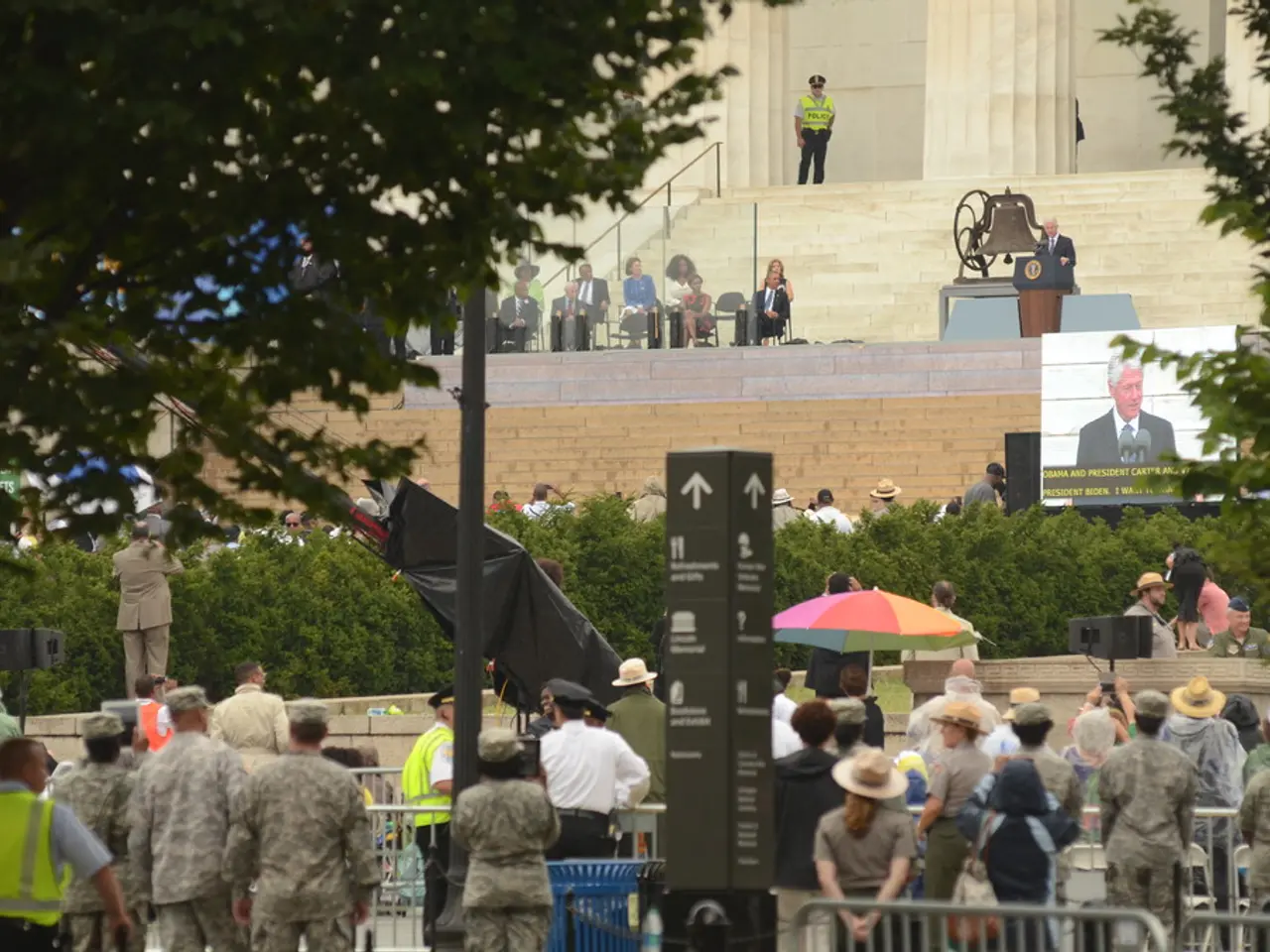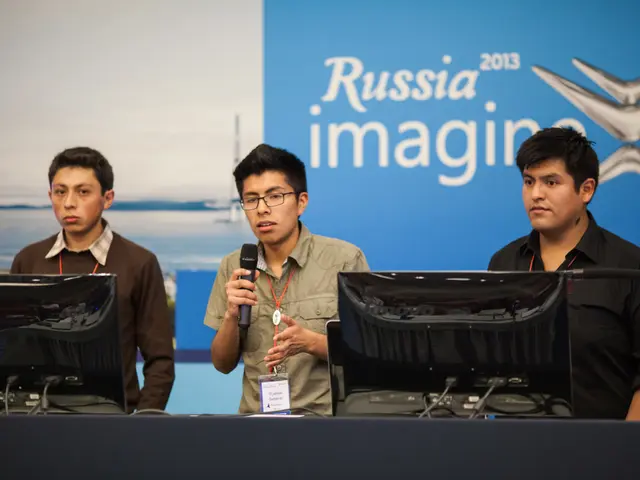Proposed changes for Sweida present a complex predicament for the Syrian administration
Israel and Syria, historically hostile neighbours, have seen a shift in their relationship in recent years, with daily direct contacts and talks about normalising relations taking place since early 2025 [1]. This change comes amid complex regional dynamics and ongoing conflict in southern Syria.
Israel maintains control over a former buffer zone in southern Syria, which it invaded in December 2024, demanding full demilitarization of the southern Syrian provinces, including Sweida [1][2]. The focus of these contacts appears to be securing a demilitarized zone in southern Syria, including near Sweida, and protecting aligned communities, such as the Druze.
The Druze community in Sweida province has faced recent sectarian violence and instability. In response, Israel has taken measures motivated by concern for this community, including receiving a delegation of Syrian Druze in March 2025, marking a historic reopening of contacts after decades [1]. Furthermore, Israel has intervened with airstrikes in July 2025, targeting Syrian government forces accused of attacking Druze civilians [4][5].
A truce was mediated by the US, Turkey, and Arab countries to halt most fighting in the area [5]. Israel emphasizes its historical ties to the Druze and has vowed to protect them, reflecting both security concerns and internal Israeli politics [4]. However, the pursuit of a humanitarian corridor from Israel to Sweida appears to be part of wider Israeli efforts to support the Druze minority amid intense local conflict, rather than a general open humanitarian pathway approved by all parties [5].
Official reports mention secret back-channel talks aiming to update the 1974 disengagement agreement and reduce tensions, but Syria rejects Israeli strikes as violations of sovereignty [1][2][4]. The Syrian side fears the corridor could be exploited for weapon smuggling.
Ahmad al-Sharaa, a Syrian, has been at the centre of these developments. He reached out to Israel and entertained the idea that Syria might one day join the Abraham Accords [6]. However, his position was highly risky, as it jeopardized the backing of his most influential supporters and risked empowering more radical factions in Syria, including Daesh [7].
The current American position focuses on building trust between Israel and Syria, but if these trust-building measures amount to one-sided concessions from the Syrian side, Washington will make it extremely difficult for Sharaa to maintain his domestic base [8]. Türkiye encouraged Sharaa to reach a security understanding with Israel despite its own hostilities with Israel [9].
Discontent was visible on the streets of Idlib, where Sharaa had launched his campaign to topple the Assad regime, due to his talks with Israel [10]. The Israeli bombing campaign following a "misunderstanding" appeared to prove the skepticism of these figures [11].
In summary, while Israel-Syria relations are still strained, de facto contacts and limited Israeli interventions occur, focused mainly on securing a demilitarized zone in southern Syria and protecting aligned communities such as the Druze. The proposed humanitarian corridor from Israel to Sweida remains an informal or emerging concept linked to these security and humanitarian concerns rather than a fully established official corridor [1][4][5].
Turkey's President Recep Tayyip Erdogan closely watches these developments in Syria and Turkey, given their shared border and complex politics. The Turkish government, traditionally supportive of the Syrian government, has expressed concerns about the potential exploitation of the proposed humanitarian corridor for weapon smuggling [12].
The Turkish policy-and-legislation towards Syria has been influenced by the war-and-conflicts raging in Syria and the general news that surrounds it. Ankara has called for a political solution to the Syrian conflict and an end to the violence, while maintaining its military presence in northern Syria [12].
The recent Turkish military operation in northern Syria, codenamed 'Source of Peace', was aimed at clearing the area of Kurdish militias and creating a buffer zone, demonstrating Turkey's continued involvement in the Syrian war-and-conflicts [13].
However, the Turkish involvement in Syria has been met with criticism from the international community, particularly from France and the United States, who argue that Turkey's military action exacerbates the instability in the region and undermines the fragile Syrian peace process [13].
[12 - Yeni Safak, Turkish Newspaper article on Syria and Turkey relations, date: 2026/02/01], [13 - BBC News, article on Turkish military operation in Syria, date: 2025/10/12]







